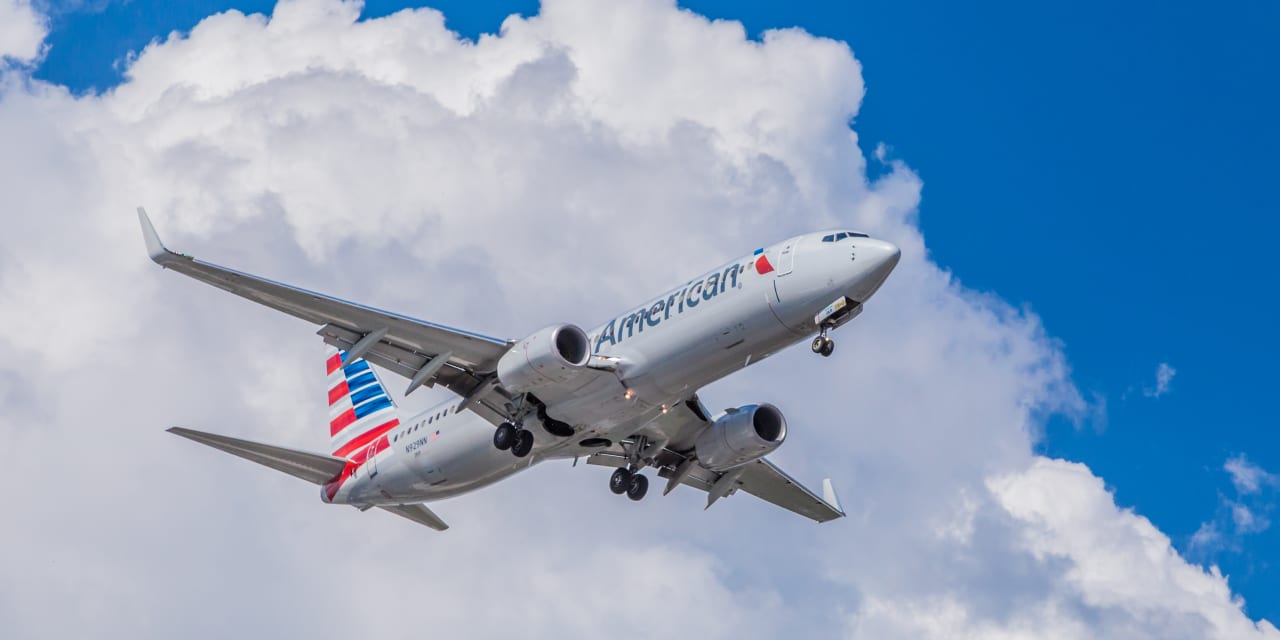Investors were handed more reasons to be bearish on airline stocks Wednesday as
American Airlines
and
Spirit Airlines
both lowered guidance for the current quarter.
American’s cut is a substantial one, driven by higher labor costs following its pay agreement with pilots and elevated fuel prices. The carrier now expects adjusted earnings per share of between 20 cents and 30 cents, down from a previous range of 85 cents to 95 cents.
The airline’s pilots agreed to a new four-year contract last month, which the Allied Pilots Association union said would increase pay by 46%.
American
(ticker: AAL) previously said the agreement would cost an extra $230 million in retroactive pay. On Wednesday, it said this would represent a hit of 23 cents a share to third quarter earnings—the rest is down to higher fuel prices. That’s a big fuel hit.
While
Spirit’s
(SAVE) guidance cut was just as concerning, if not more so, for the broader industry due to the reasons behind it.
The low-cost carrier said it has been seeing steep discounting for travel booked for the second half of the current quarter through the pre-Thanksgiving travel period. Signs of softening demand have kept airline stocks under pressure in recent months, and Spirit’s warning will only exacerbate those concerns.
Spirit, like other carriers, also cited increased fuel prices as a reason for its lower forecast.
Spirit now expects revenue of between $1.245 billion and $1.255 billion in the third quarter, down from between $1.3 billion and $1.32 billion.
The double blow hurt airline stocks early Wednesday, with American shares tumbling 4.2% to $13.52. Spirit’s shares fell 1.6%,
Delta Air Lines
(DAL) was down 3%,
United Airlines
(UAL) fell 3.1%, and
Southwest Airlines
(LUV) slipped 2.8%.
American’s outlook is “very negative,” TD Cowen analyst Helane Becker said in a note Wednesday. “These updates reinforce our stance that an elevated cost environment, constrained operations, and normalizing domestic demand are likely to result in a difficult backdrop for many carriers,” she added.
Becker maintained a Market Perform rating on the stock, equivalent to Neutral, but lowered her price target to $10 from $16.
It’s been a tough few months for airline stocks as investor enthusiasm over surging summer travel demand has been replaced by concerns over signs of a slowdown and higher fuel prices.
The
U.S. Global Jets
exchange-traded fund (JETS), which tracks the performance of airline stocks, has fallen 17% from its July peak. The ETF has fallen for eight of the past nine trading sessions through Tuesday, and was down 2.1% Wednesday.
It looks like the sector’s turbulence is set to continue.
Write to Callum Keown at callum.keown@barrons.com
Read the full article here











Leave a Reply